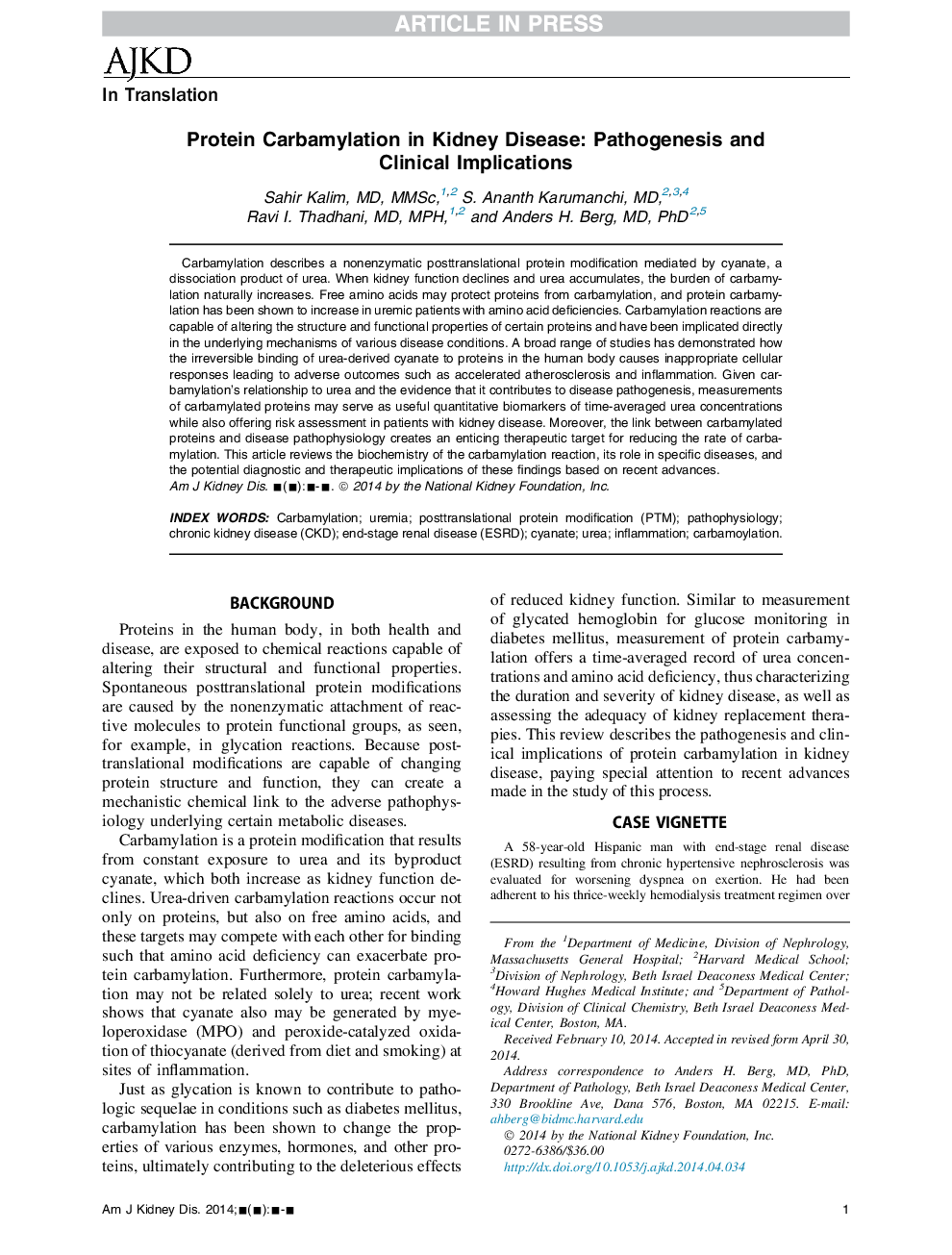| کد مقاله | کد نشریه | سال انتشار | مقاله انگلیسی | نسخه تمام متن |
|---|---|---|---|---|
| 3847864 | 1598262 | 2014 | 11 صفحه PDF | دانلود رایگان |
عنوان انگلیسی مقاله ISI
Protein Carbamylation in Kidney Disease: Pathogenesis and Clinical Implications
ترجمه فارسی عنوان
کربامیلاسیون پروتئین در بیماری کلیه: پاتوژنز و پیامدهای بالینی
دانلود مقاله + سفارش ترجمه
دانلود مقاله ISI انگلیسی
رایگان برای ایرانیان
کلمات کلیدی
موضوعات مرتبط
علوم پزشکی و سلامت
پزشکی و دندانپزشکی
بیماریهای کلیوی
چکیده انگلیسی
Carbamylation describes a nonenzymatic posttranslational protein modification mediated by cyanate, a dissociation product of urea. When kidney function declines and urea accumulates, the burden of carbamylation naturally increases. Free amino acids may protect proteins from carbamylation, and protein carbamylation has been shown to increase in uremic patients with amino acid deficiencies. Carbamylation reactions are capable of altering the structure and functional properties of certain proteins and have been implicated directly in the underlying mechanisms of various disease conditions. A broad range of studies has demonstrated how the irreversible binding of urea-derived cyanate to proteins in the human body causes inappropriate cellular responses leading to adverse outcomes such as accelerated atherosclerosis and inflammation. Given carbamylation's relationship to urea and the evidence that it contributes to disease pathogenesis, measurements of carbamylated proteins may serve as useful quantitative biomarkers of time-averaged urea concentrations while also offering risk assessment in patients with kidney disease. Moreover, the link between carbamylated proteins and disease pathophysiology creates an enticing therapeutic target for reducing the rate of carbamylation. This article reviews the biochemistry of the carbamylation reaction, its role in specific diseases, and the potential diagnostic and therapeutic implications of these findings based on recent advances.
ناشر
Database: Elsevier - ScienceDirect (ساینس دایرکت)
Journal: American Journal of Kidney Diseases - Volume 64, Issue 5, November 2014, Pages 793-803
Journal: American Journal of Kidney Diseases - Volume 64, Issue 5, November 2014, Pages 793-803
نویسندگان
Sahir MD, MMSc, S. Ananth MD, Ravi I. MD, MPH, Anders H. MD, PhD,
